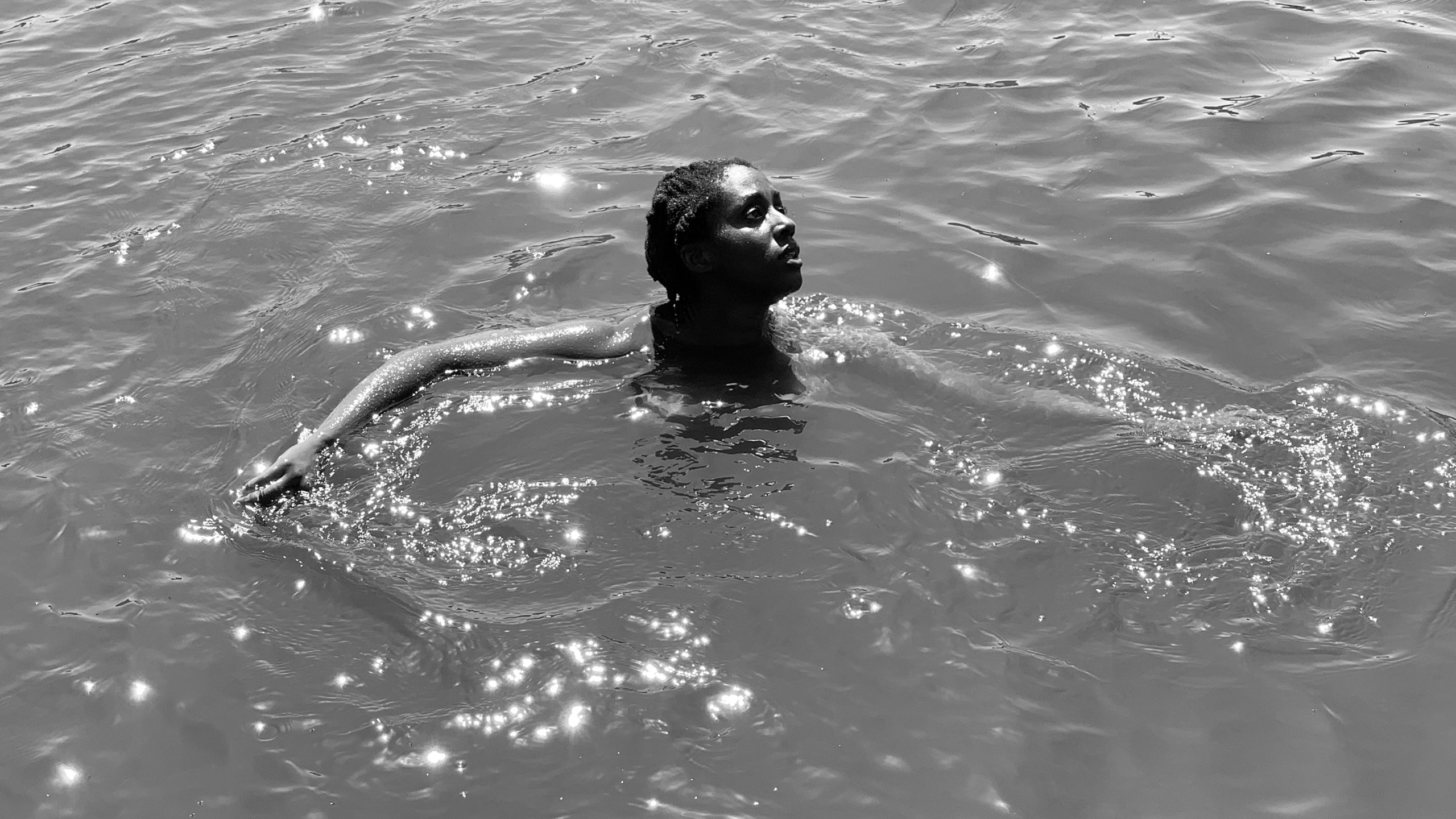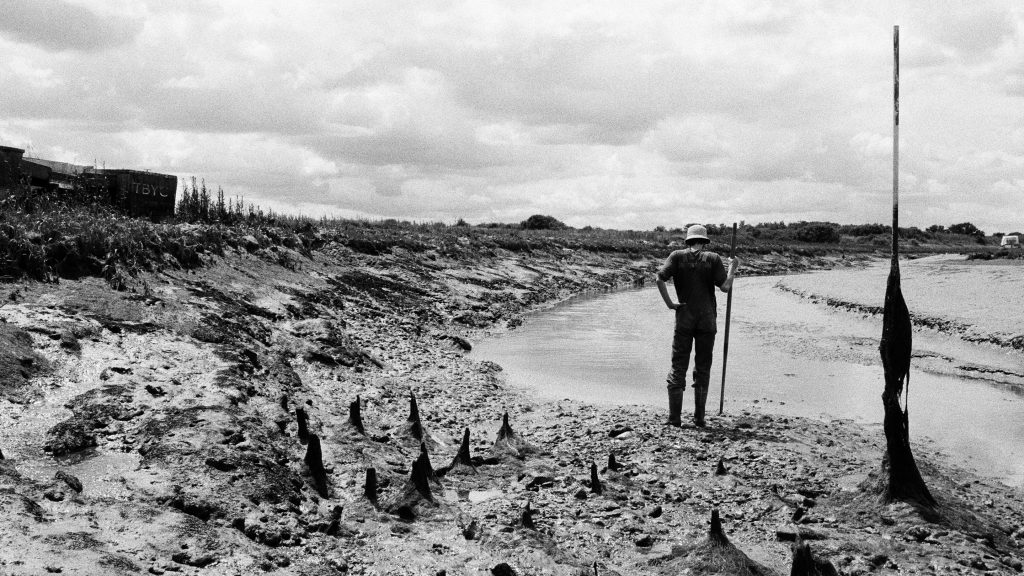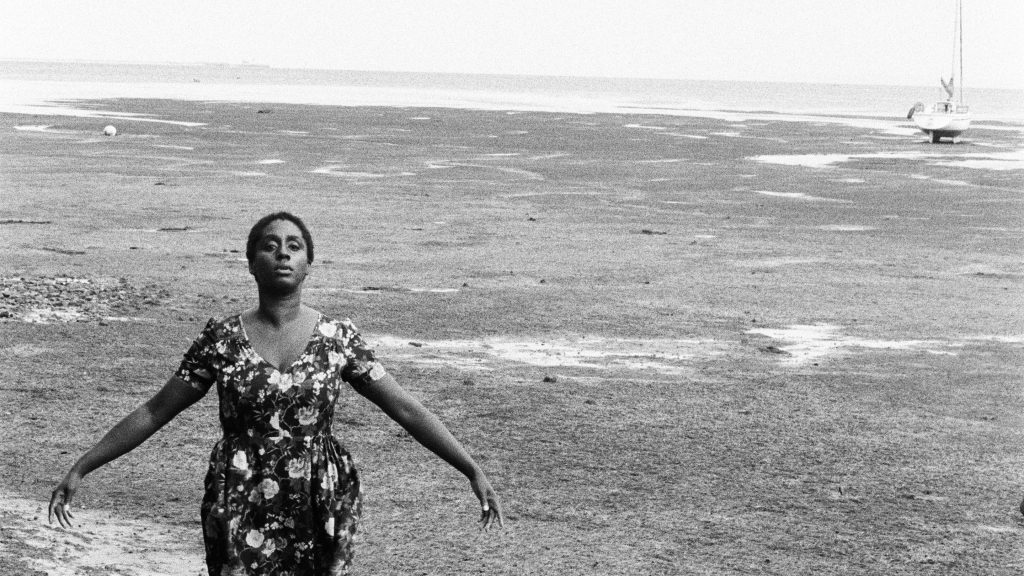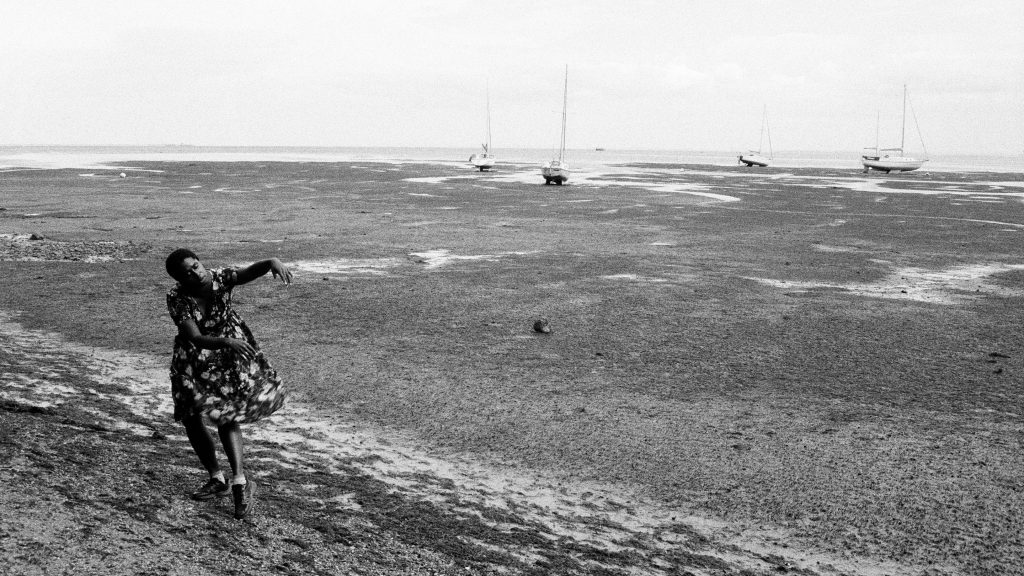Nwando Ebizie: Learn about the power of collective action

Image Credit: Nwando Ebizie, photographed by Tom Richards.
Nwando Ebizie is an artist in continual evolution – a composer, storyteller, ritualist and researcher whose work dissolves the boundaries between myth, ecology and sound. Her new album The Myth of Thamesis marks a powerful shift: an orchestral, narrative-led work that fuses epic poetry with cinematic composition to reimagine the Thames as a living spirit, speaking urgently to the Rights of Nature movement and our collective responsibility to the world around us. Hope, community and activism flow through the piece, echoing the values that have shaped her journey since her teenage discovery of creative possibility at the National Youth Theatre .
As she prepares to perform at the Barbican in Vari/ations – An Ode to Oram, paying tribute to electronic pioneer Daphne Oram, Nwando continues to expand her mythic, multisensory universe – one rooted deeply in nature, ritual, care and the transformative potential of collective imagination.
Let’s go back to your spark of origin. You’ve lived many creative lives: composer, performer, storyteller, ritualist, researcher. If you had to trace this journey back to one early moment – a feeling, an encounter, a disruption – what would it be?
My English teacher told me I should audition for the National Youth Theatre when I was 14. At the time I wanted to be a lawyer. I got in somehow, went down to London and just got hooked on something. It wasn’t acting, it wasn’t theatre – it was a sense of expansiveness around being creative and being with diverse, creative people. I’d never been near that. I felt released.
The Myth of Thamesis marks a striking shift in your practice. Musically, it’s your first major orchestral work, and narratively it’s an epic poem brought to life through sound. What compelled you towards this new scale – and when did you realise that Thamesis needed to be told through orchestra, voice and myth together?
I wanted to create a cinematic sounding experience as the piece is about storytelling, so working with a classical orchestra made sense – to give (as you say) that sense of scale. It gave me space to be dramatic, romantic, moody, playful. And I’m always trying to learn – so its been an amazing year of learning about orchestration, the sections of the orchestra.
And its also drawn together the writing – which is something I’ve always done. Just not publicly. Before I write every piece of music I write a story, a scene, a meta-narrative. Then I compose the music to the scene that I wrote – like a soundtrack.
So this piece really brought together a lot of elements that had always been in the background for me.

Image Credit: Tom Richards, photographed by Nwando Ebizie.
The river goddess Thamesis feels both ancient and entirely contemporary. You’ve spoken about crafting new myths for this moment. Why do you think myth – especially eco-myth – is such a powerful tool for speaking to our current ecological crises?
We all feel despondent – helpless in the face of climate crisis. And this is a dangerous place to be. We know how powerful psychological warfare is following Cambridge Analytica. We know that capturing our imaginations en masse is a fast track to real political change.
So now we really need these ancient/new beautiful stories to inspire us – to inspire us with hope, then to inspire us towards collective action.

Image Credit: Nwando Ebizie, photographed by Tom Richards.
You mentioned that this album sits within a larger project exploring the Rights of Nature movement. For readers who may be unfamiliar, can you talk us through this movement? What does it mean to give a river agency, personality and even legal standing – and how did those ideas shape your storytelling for Thamesis?
The Rights of Nature movement is an incredibly hopeful, powerful thing – it’s a legal process, it’s a way of seeing the world that (I believe) makes more sense. In Ecquador, in New Zealand, around the world the Rights of Nature has been enshrined into law. Inspired by Indigenous practices – seeing Nature (e.g. a tree or a river) as a person and giving them rights in law could potentially stop the destructive pollutocrats – those who poison and plunder the world for their profits.
I love that it is an inspiring perspective that centres nature and centres us as part of the natural world.
Film Credit: The Myth of Thamesis (a narrative poem). Composer, Poetry & Voice: Nwando Ebizie. Performed by Docklands Sinfonia Orchestra and Junior Guildhall.
The album moves from grief to collective action. There’s a sense of the people rising up – children, elders, workers, activists – all fighting for the river’s liberation. How important was it for you to centre collective hope and resistance within the work?
I think it’s the only way. We are on the edge of a precipice – and if each of us feel we are alone in our climate grief, we won’t make it through. We need to reach back and forwards and learn about the power of collective action.

Image Credit: Nwando Ebizie, photographed by Tom Richards.
On 4 December you perform at the Barbican in Vari/ations – An Ode to Oram. Daphne Oram revolutionised electronic sound and remains a radical force for so many artists today. How does her legacy resonate with your own practice? And what can audiences expect from your contribution on the night?
One of my favourite works of Oram isn’t even her music, but her essay – An Individual Note. I love reading about how she sees the world. She manages to connect physics, electronics and human consciousness. Her perception of the world and sound is magical.
Your work is intertwined with community, activism, experimentation and ritual. Which London venues, spaces or collectives are exciting you right now? Could you share three that you’d love our readers to explore – places where you feel genuine spark, curiosity or care?
River Action: they campaign against pollution for profit in the Thames.
I love going to Community Sauna Baths in Hackney Wick: this definitely feels like care. I’m so glad the city sauna has become a thing in this country. It shouldn’t be something for rich people in fancy spaces. It should be for everybody.
I’ve been working with Kinfolk Network recently. They are a black activist supportive group – based in London but working across the UK. It is such important work – ensuring those who are campaigning, protecting, advocating are also supported.
Find Nwando at nwandoebizie.com and on Instagram @nwando_ebizie
Nwando Ebizie: The Myth of Thamesis
Digital Album
Limited Edition CD and Book
Limited Edition 12″ Vinyl
Out now – available at nwandoebizie.bandcamp.com
Vari/ations – An Ode to Oram
Featuring Nwando Ebizie, TAAHLIAH, Deena Abdelwahed, Félicia Atkinson, xname
Thu, 4 Dec, 19:30
barbican.org.uk